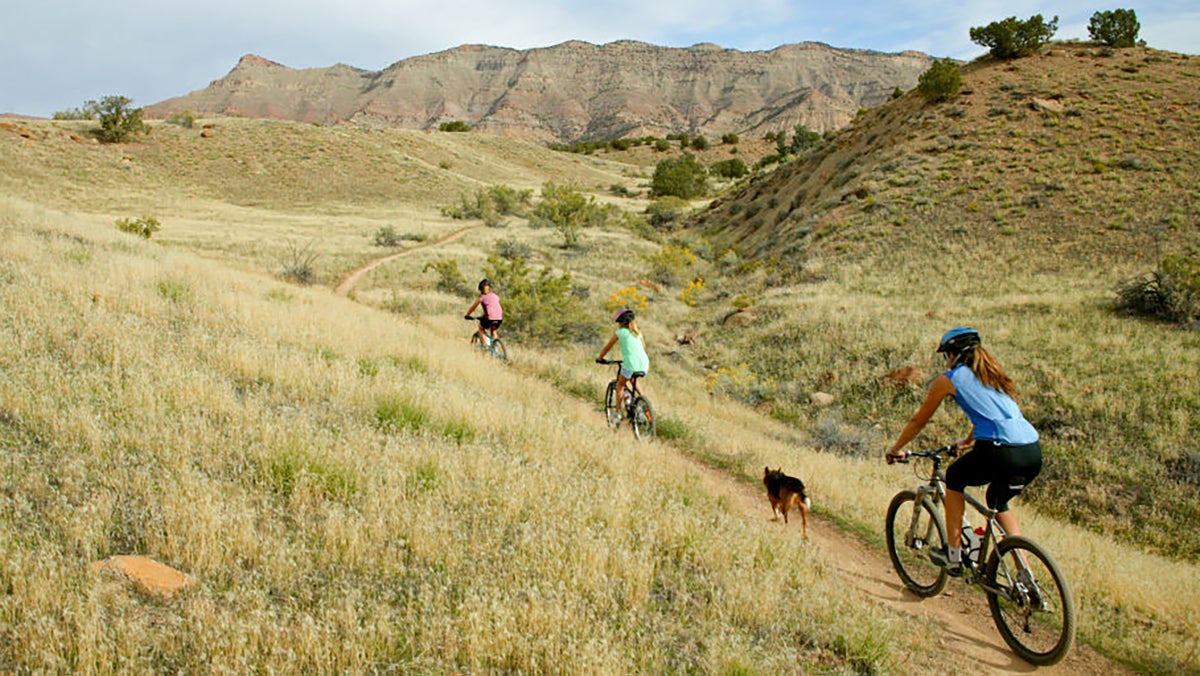
The Trump Administration is eliminating a 2024 rule that places environmental protection on par with mining, ranching, and timber cutting on lands overseen by the Bureau of Land Management.
On April 14 the White House published a notice online about its intent to rescind the Conservation and Landscape Health Rule, also called the Public Lands Rule.
The rule, which was formally published on June 12, 2024, requires the BLM to “support ecosystem health and resilience” and “protect landscapes, restore degraded habitat, and make informed management decisions based on science and data.” The rule allows the BLM to lease land to non-profit organizations for the sole purpose of festoration and conservation.
Outside reached out to the U.S. Interior Department for comment, and a media representative confirmed that the Bureau of Land Management will rescind the Public Lands Rule.
The move has generated praise from some state officials and harsh criticism from non-profit groups that work in land management and environmental protection.
The Bureau of Land Management oversees 245 million acres of land in the American West, or roughly one tenth of the country’s entire landmass. According to the Federal Land Policy and Management Act of 1976, which creates the framework for modern public lands management, the BLM should administer public lands “on the basis of multiple use and sustained yield” of resources.
When it was published in 2024, the Public Lands Rule drew immediate criticism from some lawmakers. In June, 2024, lawmakers in Utah and Wyoming filed a lawsuit to repeal the rule, arguing that it “represents a sea change in how the BLM will carry out its mission moving forward.”
“The Public Lands Rule is a classic example of a solution looking for a problem,” Utah governor Spencer Cox said at the time.
In February of 2025, senators in both Utah and Wyoming introduced the Western Economic Security Today Act—a law that would repeal the Public Lands Rule. Republican senator John Barrasso of Wyoming called the Public Lands Rule a “radical rule that threatens our Wyoming way of life.”
On Thursday, April 17, the Utah Attorney General told The Salt Lake Tribune that the Utah is “thrilled” about the Trump Administration’s move to rescind the rule.
“This rule could keep Utahns off public lands and would employ a museum-type management approach,” he said. “You can look, but you can’t touch.”
But several non-profit groups that focus on ecology and environmental protection hit back at the decision. In a public statement, Alison Flint, senior legal director for the nonprofit group The Wilderness Society called the move “a blatant giveaway to industry.”
“Public lands belong to all of us, and they should not be cast off to the highest bidder,” Flint said. “With last week’s directive, the president is putting himself above the law and planning to slash the safeguards that protect wildlife, clean air and water and the communities that depend on them.”
A statement from the Backcountry Hunters and Anglers, a nonprofit representing communities that hunt and fish, pointed out that the Public Lands Rule was published after the general public was allowed to submit comments both for and against it. The White House’s did not allow the public to comment prior to its decision to repeal it.
“The notion that the administration may intend to move forward unilaterally without following any public engagement process is deeply troubling,” said Kaden McArthur, director of policy and government relations for Backcountry Hunters and Anglers, in a statement. “The Public Lands Rule reflects years of work, including extensive input from stakeholders, to ensure the long-term health of the landscapes we rely on for healthy fish and wildlife habitat.
Steve Bloch, legal director of the Southern Utah Wilderness Alliance, a nonprofit that advocates for environmental protection, levied harsh criticism at Interior Secretary Doug Burgum, who has spoken publicly about wanting to open public lands up for agriculture, industry, and energy exploration.
“Doug Burgum often invokes President Theodore Roosevelt’s conservation legacy as a model for his own tenure as Secretary of the Interior,” Bloch said. “Teddy Roosevelt is rolling over in his grave at both the comparison and Burgum’s ever-darkening legacy over the nation’s public lands.”
The post This Rule Boosted Public Land Protection. The Feds Are Removing It. appeared first on Outside Online.















